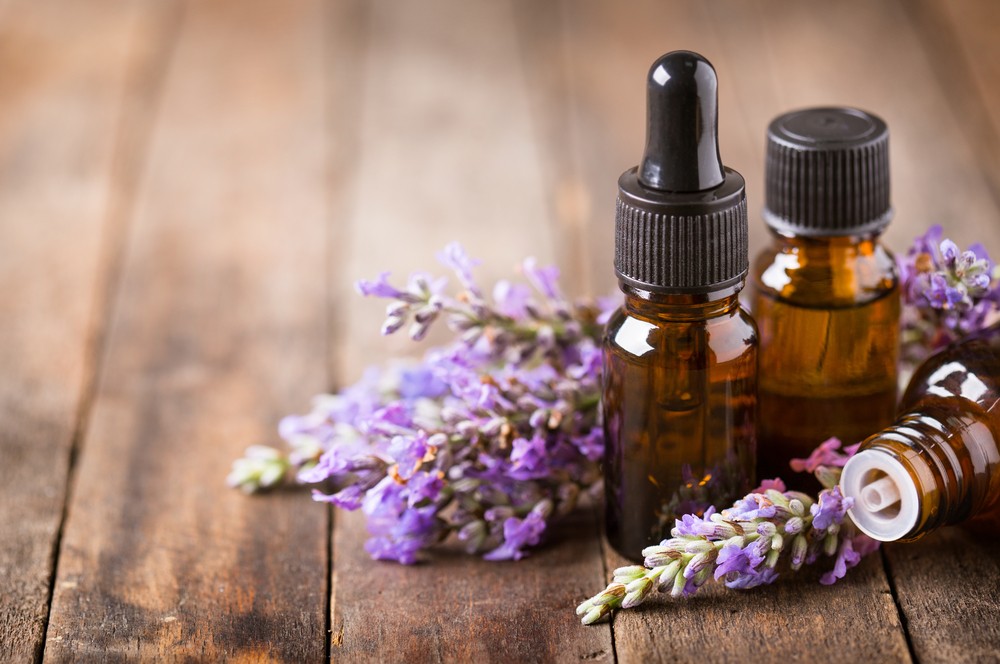Popular Reads
Top Results
Can't find what you're looking for?
View all search resultsPopular Reads
Top Results
Can't find what you're looking for?
View all search resultsMore than just a sweet scent: Getting to know essential oils
Different countries have different species of aromatic plants based on several factors, including climate, temperature, humidity and types of soil.
Change text size
Gift Premium Articles
to Anyone
M
aria Lidwina Utami has used essential oils since 2017 for various purposes, such as relieving breathing difficulties, helping her sleep, soothing her mood and improving her skin condition.
Lidwina, who uses essential oils from United States-based brand Young Living, said that she usually applied the oils on her skin and added them into a diffuser. The results satisfied her, with minimum side effects. “Sometimes when my skin is sensitive and I forget to dilute the oils, my skin feels slightly hot or irritated,” Lidwina told The Jakarta Post on Tuesday, adding that she was interested to try other variants of essential oils.
Similarly, Jakarta-based journalist Dianti Kurnianingrum also used essential oils to improve her father’s sleep. “My father in Magetan [regency, East Java] was in a recovery period and I gave him essential oils to help him sleep better,” Dianti said.
Dianti routinely looks up information about essential oils from several sources, such as from blogs, articles and people who have tried them.
“I consider essential oils part of our lifestyle, so they’re not medicine. Their role is to support our health,” she said. “I’ll still see a doctor, but I’ll help accelerate the recovery by using essential oils that suit my condition. For example, if I experience insomnia, I’ll find out about the cause before using lavender oil.”
She continued that she had not experienced any side effects from the usage. “Everything that is too much won’t be good. I do my research on the oils before I use them. I always start low and go slow – including doing a patch test at the back of my ear to ensure that the oils are safe to be applied on my skin,” Dianti said.
Natasha Clairine Mintaraga, founder of aromatic wellness destination Rumah Atsiri (House of Atsiri) in Central Java, said that essential oils were among the products of atsiri plants (aromatic plants).
Different countries have different species of aromatic plants based on several factors, including climate, temperature, humidity and types of soil. “Java Palmarosa [from Indonesia], for instance, has a different aroma and components compared to the native Palmarosa plant from India. Papua’s native plant Masoi is unique, as it cannot grow in other locations,” Natasha wrote to The Post via email on Nov. 25.
In Rumah Atsiri, the plants can also be made into decoration, air fresheners in the form of potpourri, or even beverages and snacks, such as bagelen (crunchy snacks topped with sweet butter) and chips.
Natasha said that essential oils could contain very high concentrations of certain substances as they’re obtained from a large number of plants. One drop of lemon essential oil, for instance, is equal to two lemons. So it’s recommended to start using essential oils in very small dosage and mixing them with a carrier oil.
In general, people can use essential oils in three ways, namely by inhalation as the most common way, topical application or consumption. “Topical application is often done by applying diluted essential oils on your skin,” she said. “But when it comes to consuming essential oils, it’s recommended to do it based on doctor’s advice.”
She continued that the most common mistake people made was not knowing the basic ways to use the oils. Natasha suggested a patch test to find out whether or not the user is allergic or sensitive to the oils.
“People should also educate themselves about the characteristic of each essential oil, because there are some that shouldn’t be used by people who are undergoing medical treatment or are pregnant, nor by babies below 1 year of age,” Natasha said.
Opened in 2019 on the slopes of Mount Lawu in Plumbon village, Rumah Atsiri has around 110 aromatic plants, including sereh wangi (citronella grass), sereh dapur (lemon grass) and rosemary.
Sitting on 2.5 hectares of land, Rumah Atsiri houses a restaurant, a garden, a meeting room, a museum and a glamping area. It also holds workshops under strict health protocols and has a multi-channel store, Atsiri Shop.
“Our favorite products in both our offline and online stores so far are essential oils, reed diffusers, hand sanitizer and gift sets,” Natasha said.
Amid the COVID-19 pandemic, Rumah Atsiri conducted virtual activities on Facebook and Instagram, from museum tours to workshops, collaborating with educational institutions and local businesses.
Natasha stated that they planned to keep developing. “Hopefully, our main idea to be an ‘aromatic wellness destination’ will be increasingly popular among local and international travelers. We’ll also always elevate Indonesia’s rich botany to strengthen our position in the global essential oil industry,” she said. (wng)











